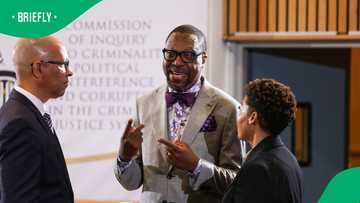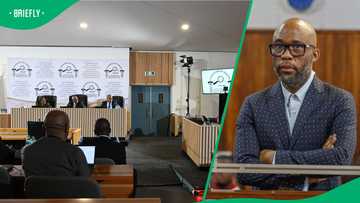Politicised SAPS Threatens Crime-Fighting and Democracy, Says Expert
- The Madlanga Commission of Inquiry exposed the extent of political interference in the work of the South African Police Service
- Most recently, the actions of Police Minister Senzo Mchunu to disband the Political Killings Task Team shed light on how extensively politicians are involved in the operations of the police
- Briefly News spoke to Dr Tinyiku Ngoveni, the Chair of UNISA’s School of Criminal Justice, about the intertwining of politics and the police
With 10 years’ experience, Tebogo Mokwena, Briefly News’ Deputy Head of the Current Affairs desk, South Africa, provided insights into the criminal justice system, crime statistics, commissions of inquiry, and high-profile cases in South Africa at Daily Sun.
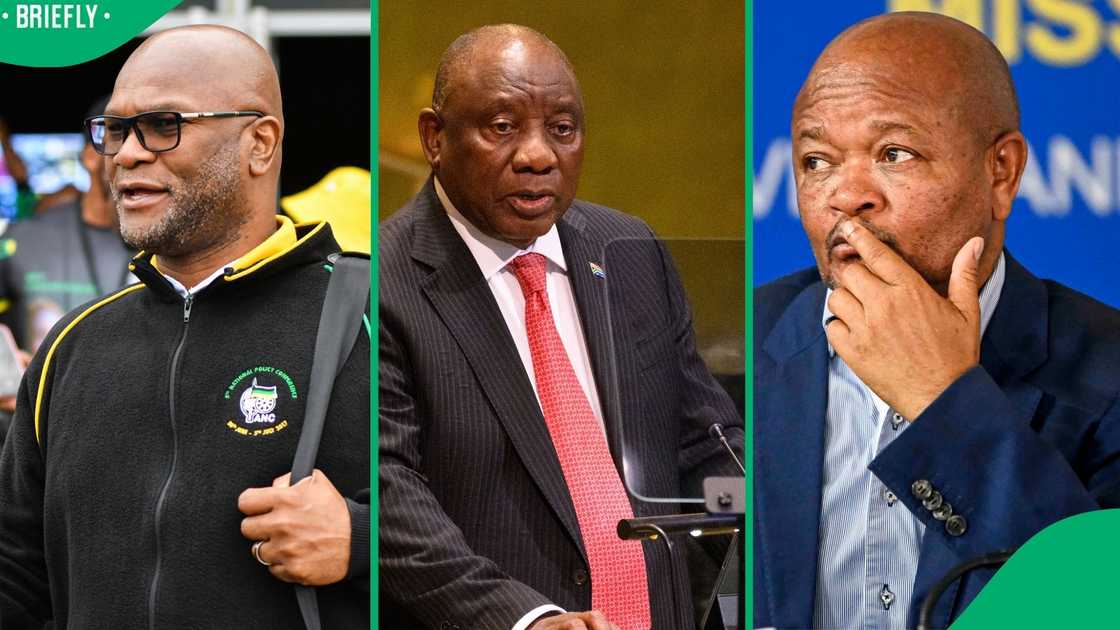
Source: Getty Images
PRETORIA, GAUTENG — The Madlanga Commission of Inquiry revealed how the interference of politicians in the South African Police Service's work has compromised the integrity of the police and eroded the morals of dedicated police officers. This is according to Dr Tinyiku Ngoveni, the chairperson of the University of South Africa's School of Criminal Justice. Ngoveni exclusively spoke to Briefly News about political interference in the police service.
Tinyiku’s interview comes amid public hearings that the Madlanga Commission of Inquiry held. Commissioners and South Africans heard how politicians have had a history of attempting to influence the outcome of investigations or outright prevent the police from effectively doing their work.
A history of political interference in SAPS work
KwaZulu-Natal Provincial Commissioner General Nhlanhla Mkhwanazi kicked off the public hearings with explosive allegations. He implicated the former Minister of Police, Nathi Mthethwa, in misconduct during his tenure from 2009 to 2014.
PAY ATTENTION: Briefly News is now on YouTube! Check out our interviews on Briefly TV Life now!
He alleged that Mthethwa forced the former Inspector General of Intelligence, Faith Radebe, to withdraw a criminal case against former crime boss Richards Mdluli. Mdluli was accused of abusing the police’s secret slush funds and splurging on private trips and using safe houses for personal use.
The Presidency was also implicated. Mkhwanazi pointed out that the Presidency allegedly interfered in the investigation of the murder of the general manager of Richards Bay Minerals, Nico Swart, in 2021. The detectives who investigated the case were withdrawn to the KwaZulu-Natal headquarters a year later due to a lack of resources. Mkhwanazi said he received a call from National Police Commissioner General Fannie Masemola. Masemola told him that the Presidency complained that Mkhwanazi withdrew the detectives.
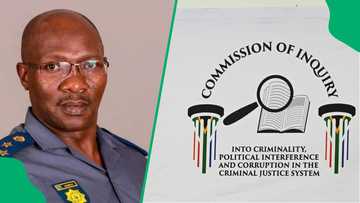
Read also
Madlanga Commission: General Dumisani Khumalo exposes politicians who faked assassination attempts
Most recently, Police Minister Senzo Mchunu was put in the spotlight after it emerged that, with the help of suspended Deputy National Commissioner General Shadrack Sibiya, he disbanded the Political Killings Task Team on 31 December 2024.
Yet, it was the disbandment of a Task Team that was investigating high-profile political killings and crime cases that broke the camel’s back. Mkhwanazi took the country into his confidence in a press briefing he held on 6 July 2025. He implicated Mchunu and Sibiya and exposed the alleged ties between politicians, the police and crime syndicate bosses.
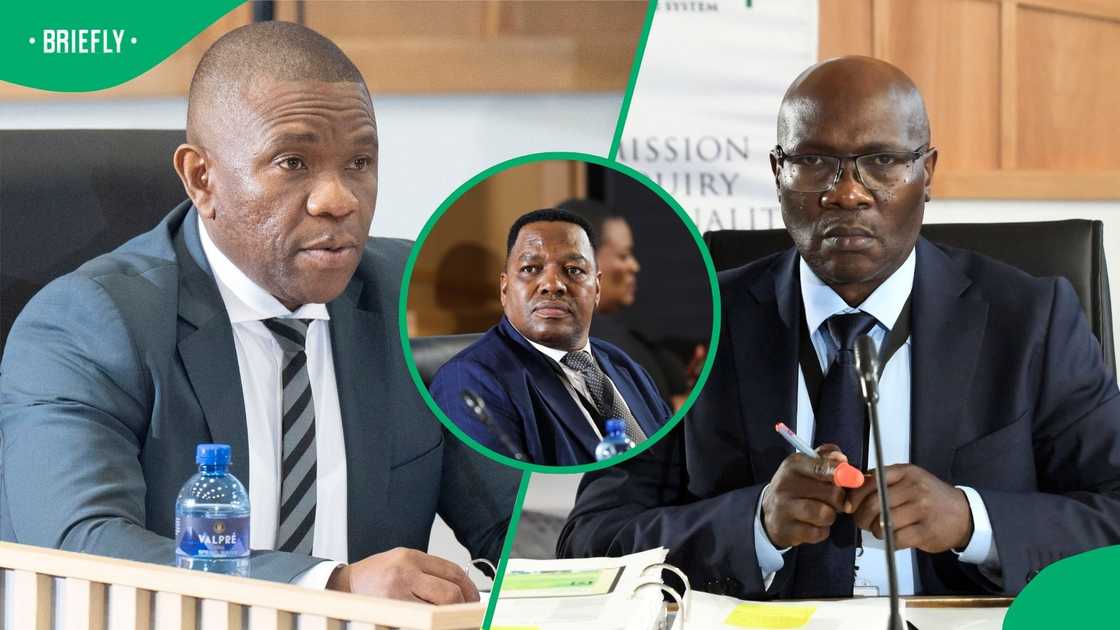
Source: Getty Images
Dr Ngoveni weighs in
Dr Ngoveni, who holds a Master’s degree and a PhD in Policing, told Briefly News that the testimonies of Mkhwanazi, Masemola and crime intelligence boss Dumisani Khumalo revealed that the country was in a serious state of disarray. He likened the capture of the criminal justice system to the influence of the Mexican drug cartel under the leadership of the infamous Pablo Escobar.
Ngoveni said that the disbandment of the PKTT pointed to deeper systemic issues based on the arrogance of certain SAPS members. These members are motivated by the privileges they were receiving from political heads, such as ministers.
“Constitutionally, SAPS is well-shaped and is in good standing, but the highly unethical kleptocratic behaviour of Members of Parliament, such as ministers, has polluted the police force. An example of this can be how promotions, especially in a strategic position that are nepotistic, result in low morale,” he said.
The risks of politicising the police
Ngoveni told Briefly News that politicising the police comes with a high risk of negatively influencing crime-fighting and democracy. He pointed out that the revelations from the Madlanga Commission of Inquiry serve as evidence. Ngoveni remarked that politicians were abusing the SAPS for their own individual needs.
He mentioned that the deaths of whistleblowers such as former African National Congress Youth League Secretary-General Sindiso Magaqa and Babita Deokaran serve as examples. Ngoveni also said that the Ekurhuleni Metro Police Department’s involvement in fitting attempted murder-accused Vusimuzi Matlala’s vehicles with blue lights and registering them as state vehicles cemented the rot in the criminal justice system.
“The protection of our police from political interference is well-positioned constitutionally, but the issue of political powers and protocols remains a problem because some politicians tend to believe that they are the alpha and omega, resulting in an abuse of power for their own individual and collective interests sometimes,” he said.
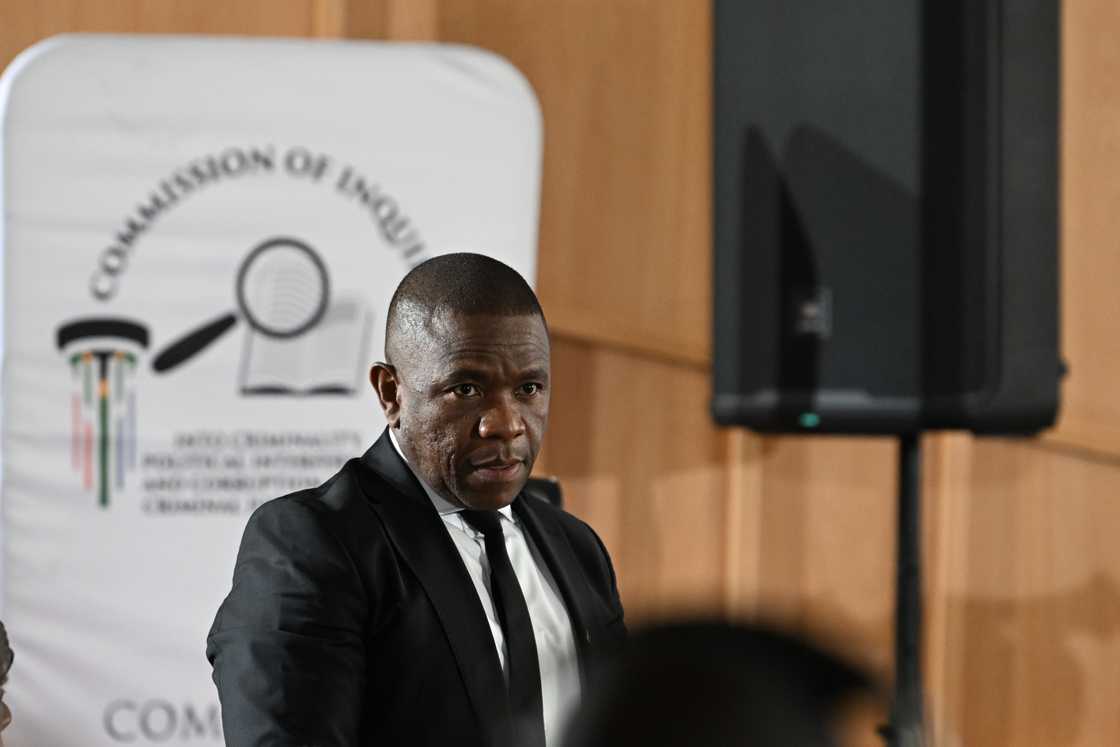
Source: Getty Images
South Africa must go back to basics: Ngoveni
Ngoveni pointed out that South Africans must go back to basics, pause, and introspect. He added that appointments and promotions at various levels must be reviewed. Ngoveni said that the appointment of top management can be referred to by a statutory body, with the level of oversight the Judicial Service Commission has on the judiciary.
Ngoveni also cautioned that for the sake of the country and future generations, the outcomes and recommendations of all commissions, such as the Moereng, Nuget, Zond,o and Madlanga Commissions of Inquiry, must be taken seriously and implemented.
A call to communities to work with SAPS
Ngoveni also urged members of the community to work with the police. He noted that most South Africans are correct in being concerned about the police service.
“SAPS is a South African institution and not an individual platform. While we have these corrupt politicians and police officers, respectively resulting in poor service, the institution still has police officers who are trying their best to ensure the safety of community members,” he said.
Ngoveni said that it is the duty of community members to form part of the police and monitor and prevent crime through structures like community policing forums.
“Members of the community must be familiar with other structures, such as the Independent Police Investigative Directorate, which they can rely on in case they are not happy with police performance. Members of the community must also be familiar with their police stations and management,” he added.
Senzo Mchunu’s PKTT disbandment letter goes viral
In a related article, Briefly News reported that Mchunu’s disbandment letter of the Political Killings Task Team went viral. Mchunu wrote the letter on 31 December 2024 ordering Massemola to disband the PKTT.
Mchunu said that the Political Killings Task Team no longer served its purpose. He directed Masemola to provide him with feedback on the task team’s disbandment.
PAY ATTENTION: Follow Briefly News on Twitter and never miss the hottest topics! Find us at @brieflyza!
Proofreading by Kelly Lippke, copy editor at Briefly.co.za.
Source: Briefly News

Tebogo Mokwena (Current Affairs editor) Tebogo Mokwena is the Deputy Head of the Current Affairs desk and a current affairs writer at Briefly News. With a Diploma in Journalism from ALISON, he has a strong background in digital journalism, having completed training with the Google News Initiative. He began his career as a journalist at Daily Sun, where he worked for four years before becoming a sub-editor and journalist at Capricorn Post. He then joined Vutivi Business News in 2020 before moving to Briefly News in 2023.

Dr Tinyiku David Ngoveni (Chair of Department of Criminology and Security Science) Dr. Tinyiku David Ngoveni is a Senior Lecturer and Chair of the Criminology & Security Science Department at UNISA's School of Criminal Justice. With vast academic experience, he has contributed to Teaching & Learning, Research, Engaged Scholarship, and Academic Citizenship. His research focuses on a multi-disciplinary approach to safety and security, with notable publications on CPF and SAPS collaboration in crime prevention.

